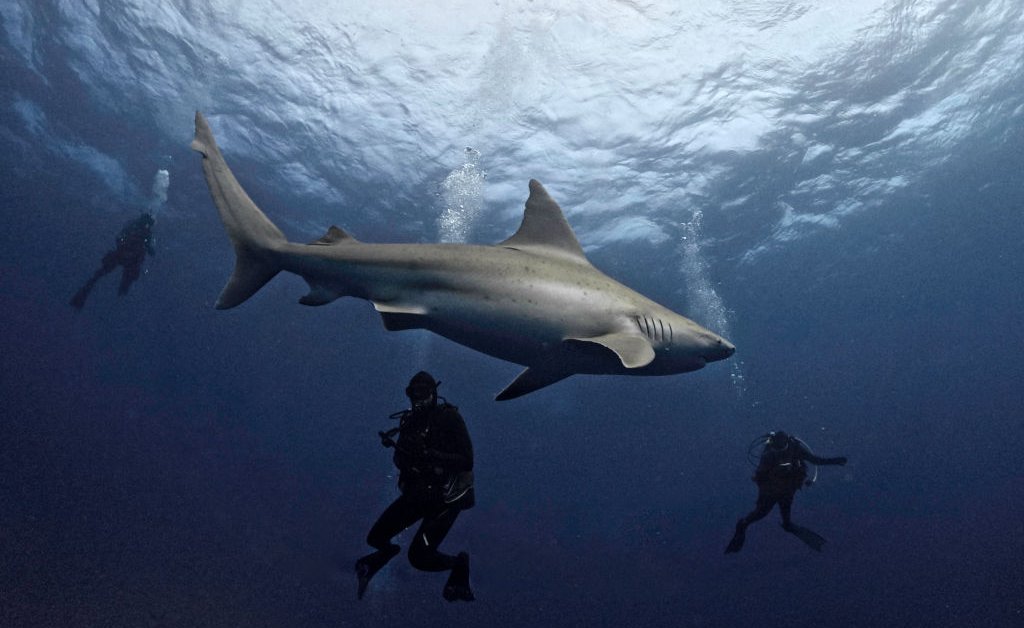Beyond The Screen: How "Jaws" Shaped Public Perception Of Sharks And Conservation

Welcome to your ultimate source for breaking news, trending updates, and in-depth stories from around the world. Whether it's politics, technology, entertainment, sports, or lifestyle, we bring you real-time updates that keep you informed and ahead of the curve.
Our team works tirelessly to ensure you never miss a moment. From the latest developments in global events to the most talked-about topics on social media, our news platform is designed to deliver accurate and timely information, all in one place.
Stay in the know and join thousands of readers who trust us for reliable, up-to-date content. Explore our expertly curated articles and dive deeper into the stories that matter to you. Visit Best Website now and be part of the conversation. Don't miss out on the headlines that shape our world!
Table of Contents
Beyond the Screen: How "Jaws" Shaped Public Perception of Sharks and Conservation
Steven Spielberg's 1975 blockbuster, Jaws, remains a cinematic masterpiece. Its gripping narrative and iconic score instilled fear in audiences worldwide, but its legacy extends far beyond the silver screen. The film profoundly impacted public perception of sharks, sparking a wave of fear and misunderstanding that continues to influence shark conservation efforts today. This article delves into the lasting impact of Jaws, exploring both the negative consequences and the surprisingly positive shifts in awareness that have emerged in the decades since its release.
The "Jaws" Effect: A Legacy of Fear
Jaws presented sharks as mindless, man-eating killing machines. This portrayal, while effective storytelling, grossly misrepresented the reality of shark behavior. The film's success led to a dramatic surge in shark attacks – not actual attacks, but the perceived threat. Beach attendance plummeted, and many local economies reliant on tourism suffered. The media frenzy fueled by the film's popularity amplified the fear, painting sharks as inherently dangerous predators deserving of eradication. This perception unfortunately overshadowed the crucial ecological role sharks play in maintaining healthy ocean ecosystems.
The Negative Fallout: Overfishing and Misinformation
The widespread fear ignited by Jaws directly contributed to a significant increase in shark culling. Many governments and individuals, driven by panic rather than scientific understanding, launched aggressive shark hunting campaigns. This indiscriminate killing decimated shark populations globally, pushing numerous species towards the brink of extinction. The misinformation perpetuated by the film fueled this tragedy, leaving little room for rational discussion about shark conservation. The consequences are still being felt today, with many shark populations struggling to recover.
A Turning Point: From Fear to Understanding
While the initial impact of Jaws was overwhelmingly negative, the film's enduring popularity has, paradoxically, also sparked a renewed interest in shark conservation. The very visibility of the issue, initially driven by fear, eventually opened doors for scientists, conservationists, and educators to challenge the inaccurate portrayal of sharks. Documentaries like Planet Earth and Blue Planet II, along with numerous research initiatives, have helped to paint a more nuanced and accurate picture of these magnificent creatures.
Modern Conservation Efforts: A Renewed Focus on Sharks
Today, numerous organizations are dedicated to shark conservation, working to combat overfishing, protect vital shark habitats, and educate the public. These efforts include:
- Marine Protected Areas (MPAs): Establishing protected areas where sharks can thrive without the threat of fishing.
- Sustainable Fishing Practices: Promoting responsible fishing methods that minimize bycatch (unintentional capture of non-target species, including sharks).
- Public Awareness Campaigns: Educating the public about the importance of sharks in marine ecosystems and dispelling common myths and misconceptions.
- Research and Monitoring: Conducting scientific research to better understand shark behavior, population dynamics, and the threats they face.
Beyond the Myth: Appreciating the Ocean's Apex Predators
While Jaws undeniably contributed to a period of fear and misunderstanding, its legacy has also inadvertently propelled a crucial conversation about shark conservation. By acknowledging the film's impact, both positive and negative, we can learn valuable lessons about the power of media representation and the importance of scientific accuracy in shaping public perception. The future of shark conservation depends on our ability to move beyond the myth and embrace a more informed and compassionate understanding of these vital ocean inhabitants. Learn more about shark conservation efforts at [link to a relevant conservation organization]. Support their work and help protect these magnificent creatures for future generations.

Thank you for visiting our website, your trusted source for the latest updates and in-depth coverage on Beyond The Screen: How "Jaws" Shaped Public Perception Of Sharks And Conservation. We're committed to keeping you informed with timely and accurate information to meet your curiosity and needs.
If you have any questions, suggestions, or feedback, we'd love to hear from you. Your insights are valuable to us and help us improve to serve you better. Feel free to reach out through our contact page.
Don't forget to bookmark our website and check back regularly for the latest headlines and trending topics. See you next time, and thank you for being part of our growing community!
Featured Posts
-
 Colorado Moms Husband Faces Second Arrest In Murder Case
Jun 21, 2025
Colorado Moms Husband Faces Second Arrest In Murder Case
Jun 21, 2025 -
 Ufc El Combate Clave De La Jaula Bahamondes Contra Un Rival Con Pasado Policial
Jun 21, 2025
Ufc El Combate Clave De La Jaula Bahamondes Contra Un Rival Con Pasado Policial
Jun 21, 2025 -
 Close Call Presslys Save Delivers Astros Win Over Pirates
Jun 21, 2025
Close Call Presslys Save Delivers Astros Win Over Pirates
Jun 21, 2025 -
 Second Arrest For Barry Morphew In Connection With Suzanne Morphews Murder
Jun 21, 2025
Second Arrest For Barry Morphew In Connection With Suzanne Morphews Murder
Jun 21, 2025 -
 Tulsi Gabbard Sidelined Trump Administrations Israel Iran Strategy Under Scrutiny
Jun 21, 2025
Tulsi Gabbard Sidelined Trump Administrations Israel Iran Strategy Under Scrutiny
Jun 21, 2025
